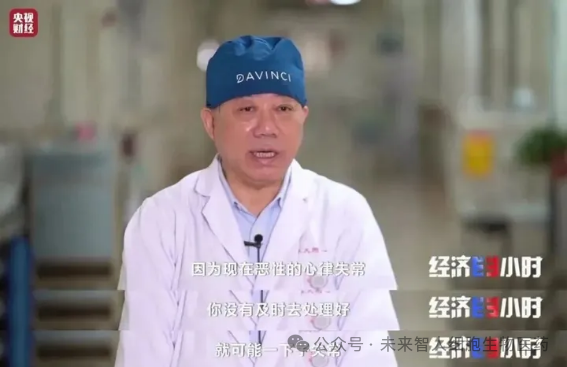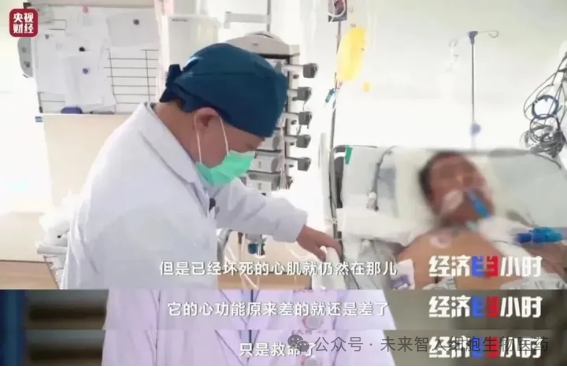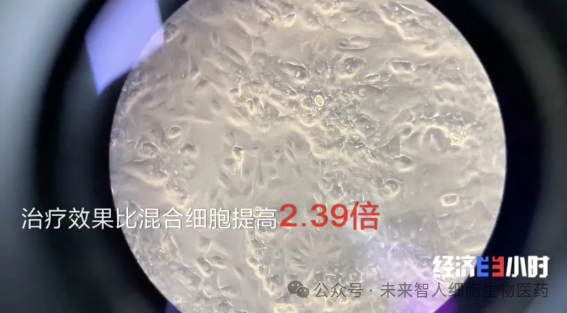CCTV reports: Shen Zhenya, director of cardiac macrovascular surgery at the First Affiliated Hospital of Soochow University, has treated 135 cases of dilated cardiomyopathy, coronary artery disease, cardiac insufficiency, and severe valvular disease requiring surgical heart disease with stem cell therapy, and 83.3% of the patients' symptoms were significantly improved after stem cell transplantation.
In China, 3 million people die of cardiovascular disease every year, equivalent to one person every ten seconds due to cardiovascular disease, especially in recent years, the incidence of cardiovascular disease and mortality rate are rising steeply.
In the news, Prof. Shen introduced, “Examples of passing away due to heart disease are common, suffering from heart disease, malignant arrhythmia, if you don't go in time to deal with it properly, you may be out of order all of a sudden, and your heart stops beating.”

Ischemic Heart Disease “Cure” Challenge
In addition to acute myocardial ischemia, chronic ischemic heart disease is the “number one health killer”, according to the World Health Organization statistics, since 2000 to 2019, ischemic heart disease is ranked as the first cause of death of all human beings, accounting for 16% of the world's total deaths.
Heart failure, which is a global problem, most heart failure patients are caused by ischemic heart disease.
Now even the most advanced hospitals in the world can only improve the blood supply to the heart by means of drugs and stent bypass, but still cannot solve the fundamental problem.
Prof. Shen introduced “let's say coronary heart disease, whether it is a bridge, or put a stent, the patient restored blood supply, but has necrosis of the heart muscle is still there, its heart function was poor is still poor, just to save lives. But poor cardiac function poor quality of life.”

Heart failure, which is a worldwide problem, is caused by ischemic heart disease in a large proportion of heart failure patients. Even the most advanced hospitals in the world can only improve the blood supply of the heart by means of drugs and stent bypass, but still cannot solve the fundamental problem.
Currently, the scientific community generally believes that mature adult cardiomyocytes are terminally differentiated cells that do not have the ability to regenerate and renew themselves. However, Prof. Shen Zhenya's team discovered a subpopulation of bone marrow stem cells by studying the antigens on the surface of the stem cells, and used them as seed cells for transplantation into infarcted hearts, obtaining a 2.39-fold increase in therapeutic effect compared to mixed cells.

At an unexpected surgery, the patient's only chance of survival was a heart transplant, yet a donor heart could never be found and his life was in jeopardy. So, Shen Zhenya decided to take the plunge with his successful stem cell research.
The first hospital attached to Suzhou University, director of cardiovascular surgery Shen Zhenya: “In a sudden surgery, the patient's only chance of survival is a heart transplant, but half a year can not find a donor heart, he has been precarious, in the bed simply can not move. “ So, Shen Zhenya, with the patient's consent, used the patient's bone marrow successfully cultured into stem cells, and achieved remarkable results after transplantation.
At present, Shen Zhenya has conducted stem cell therapy for 135 patients with dilated cardiomyopathy, coronary artery disease, cardiac insufficiency and severe valvular disease requiring surgery. 83.3% of the patients' symptoms were significantly improved after transplantation of stem cells.
More than a decade of research, Shen Zhenya with his team broke through the bottleneck of ischemic heart disease cell therapy, the first in the country to carry out clinical translation, won the second prize of the National Science and Technology Progress in 2020.
Five possible “mechanisms” of stem cell therapy for heart disease:
1. High self-proliferative capacity and multidirectional differentiation potential
MSCs have a strong self-renewal ability and still have stem cell properties after multiple passaging and expansion. Under appropriate induction conditions in vitro or in vivo, they can be differentiated into a variety of tissue cells such as bone, cartilage, fat, muscle, endothelium, nerves, liver and myocardium, and are regarded as ideal seed cells for tissue repair.
2. Impairment of chemotaxis and homing
Stem cell homing refers to the characteristic of stem cells moving directionally to target tissues and organs under specific conditions after transplantation. When the body encounters damage, the damaged area will release special endocrine signals and secrete a variety of cytokines, chemokines and adhesion factors, which will guide the targeted homing of stem cells to play a role in tissue repair.
3. Paracrine mechanisms
It was found that co-culturing MSC-derived exosomes with cardiac stem cells increased endothelial cell differentiation, enhanced neovascularization, reduced fibrosis, and served to repair the myocardium.
4. Promote blood vessel regeneration
MSCs can not only differentiate into vascular endothelial cells to participate in blood vessel formation, but also integrate directly into blood vessels. Most of the integrated cells can secrete growth factors to promote endothelial cell maturation and vascular regeneration.
5. Immunomodulation
MSCs have uniquely low immunogenicity, and studies have also found that the cellular immunosuppressive effects of MSCs inhibit the inflammatory response of infarcted cells, thereby reducing acute myocardial injury caused by inflammatory cells and inflammatory factors.


